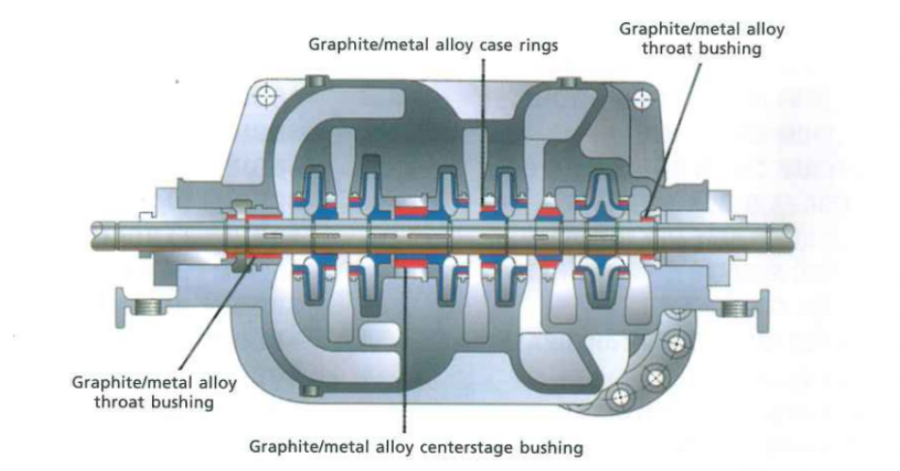Boiler feed pumps are fundamental components in many industrial sectors. They play a crucial role in the high-pressure transfer of liquids, essential for the efficient operation of industrial systems.
Characteristics and Advantages
- High-Pressure Operation: These pumps are designed to operate under extremely high pressures, making them ideal for energy sector applications.
- High Performance and Efficiency: They ensure a stable and continuous liquid flow, guaranteeing the efficiency of production processes.
- Reliability and Durability: Particularly important in conditions where equipment failure can have serious consequences.
Variety in Design
- Sectional Centrifugal Pumps: Characterized by multiple impellers arranged sequentially on a single shaft, enabling high-pressure output. The pump body consists of separate sections, each with an impeller. Available in both horizontal and vertical configurations.
- Piston and Plunger Pumps: Best suited for creating high pressure with precise control, especially with small liquid volumes.
- Screw Pumps: Ideal for pumping viscous liquids, providing a smooth and uniform flow.
- Diaphragm Pumps: Used for pumping chemically aggressive or contaminated liquids, as the liquid does not contact the moving parts of the pump.
- Gear Pumps: Employed for efficient pumping of viscous liquids using the interaction of two gears.
Boiler feed pumps are used in various sectors, including energy, chemical industry, water treatment systems, and the food industry.
Continuous advancements in technologies like artificial intelligence open new possibilities for optimizing boiler feed pump operations, improving efficiency, and reducing operational costs.
Materials Used in Manufacturing Boiler Feed Pumps
- 1. Carbon Steel
- Usage: Widely used for pump casings and impellers.
- Advantages: Provides good strength and high-pressure resistance.
- Limitations: Susceptible to corrosion when exposed to certain types of liquids or aggressive environments.
2. Stainless Steel
- Usage: Utilized in parts of the pump that come into contact with the liquid, especially if the liquid is corrosive.
- Advantages: High corrosion resistance, strength, and longevity.
- Note: Various types of stainless steel are available, each suitable for specific operational conditions.
3. Bronze and Brass
- Usage: Often used for manufacturing impellers, especially in pumps for seawater or corrosive environments.
- Advantages: Good corrosion resistance in seawater and other aggressive media.
4. Cast Iron
- Usage: Cast iron can be used for pump casings in less aggressive conditions.
- Advantages: Low cost, adequate strength, and wear resistance.
- Limitations: Less corrosion resistance compared to stainless steel.
5. Polymers and Composite Materials
- Usage: Used for seals, diaphragms, and other parts where chemical resistance is required.
- Advantages: Corrosion resistance, chemical inertness, and lightness.
6. Ceramics and Cermets
- Usage: Applied in high-temperature and high-stress sections of pumps.
- Advantages: Exceptional wear resistance, corrosion resistance, and high-temperature tolerance.
The choice of material for a boiler feed pump depends on several factors, including the characteristics of the liquid being pumped, operating conditions of the pump, and economic considerations. Manufacturers aim to optimize the combination of materials to achieve maximum efficiency, longevity, and reliability in the pumps.
